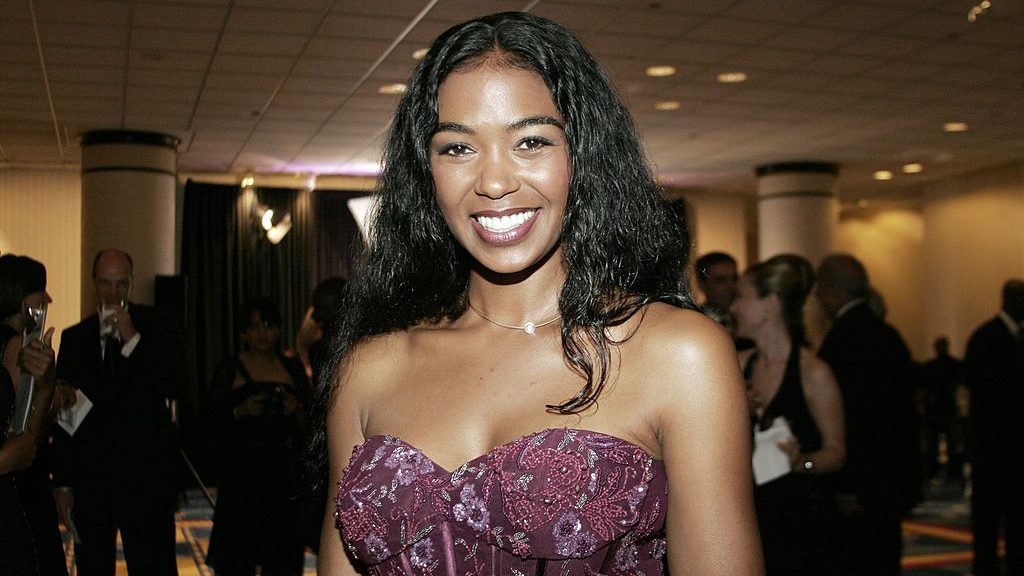Former MTV VJ Ananda Lewis’ breast cancer has spread after opting to ‘keep’ her tumor: ‘I thought I had this’
Ananda Lewis arrives at Radio One’s 25th Anniversary Awards Gala August 17, 2006 in Washington DC. (Photo by Nancy Ostertag/Getty Images)
Ananda Lewis discussed her health journey with CNN’s Stephanie Elam.
When former MTV VJ Ananda Lewis was first diagnosed with stage III breast cancer, she declined a double mastectomy from her doctor. Believing she had the knowledge of how to holistically remove toxins on her side, she took matters into her own hands.
Now, the TV personality, 51, is sharing that her cancer, first detected in 2020, has spread and reached stage IV.
During a round table discussion with CNN’s Stephanie Elam and CNN anchor Sara Sidner, who was also diagnosed with stage III breast cancer, Lewis explained her health journey and why she chose to keep her tumor after it was first detected.
“My plan at first was to get out excessive toxins in my body. I felt like my body is intelligent, I know that to be true. Our bodies are brilliantly made,” she said.
“I decided to keep my tumor and try to work it out of my body a different way,” she continued. “Looking back on that, I go, ‘You know what? Maybe I should have.’”
In addition to medication and radiation and improving her sleep and diet, the MTV alum went the homeopathic route. Things improved for a while until last year when Lewis discovered her cancer had spread.
“It was the first time I ever had a conversation with death because I felt like this is how it is,” Lewis said, adding, “I was just like, ‘Fudge man, I really thought I had this.’ I was frustrated, I was a little angry at myself, and I said, ‘Man, listen. I know you’re coming for me at some point. But I don’t want it to be now. And if you could just wait, I promise when you do come, I’m gonna make it fun for you.’”
Recommended Stories
Lewis (wed to Will Smith’s little brother, Harry Smith, and mother to their son Langston, 13) noted she had that conversation with death after being bedridden for nearly eight weeks.
Empathizing with the desire to want to live when you feel physically on the brink of death, Sidner shared how she started seeking out more joy upon her diagnosis.
“My quality of life was very important to me … I want to want to be here. So I had to do it a certain way, for me,” she explained.
This frank discussion on breast cancer arrives amidst Breast Cancer Awareness Month — and at a time when diagnoses are rising in younger women. While Black women like Lewis and Sidner may not get breast cancer as often as their white counterparts, Black women remain the most likely to die from any cancer.
There are several factors leading to this tragic disparity, including systematic barriers to healthcare, lifestyle, environment, diet, and family history. As previously reported by theGrio, in the case of Lewis, she admitted she had neglected to get regular mammograms after turning 40 because of concerns about radiation exposure.
Most can understand Lewis’ intentions to gain control over her health on her own terms. However, early detection coupled with the right treatment plan at the onset dramatically increases survival rates after diagnosis.
“If we can get just one woman to get their mammogram because of this conversation, that’s success,” Elam wrote in the caption of a post on Instagram about the round table talk. “I want everyone to live long, healthy lives.”

